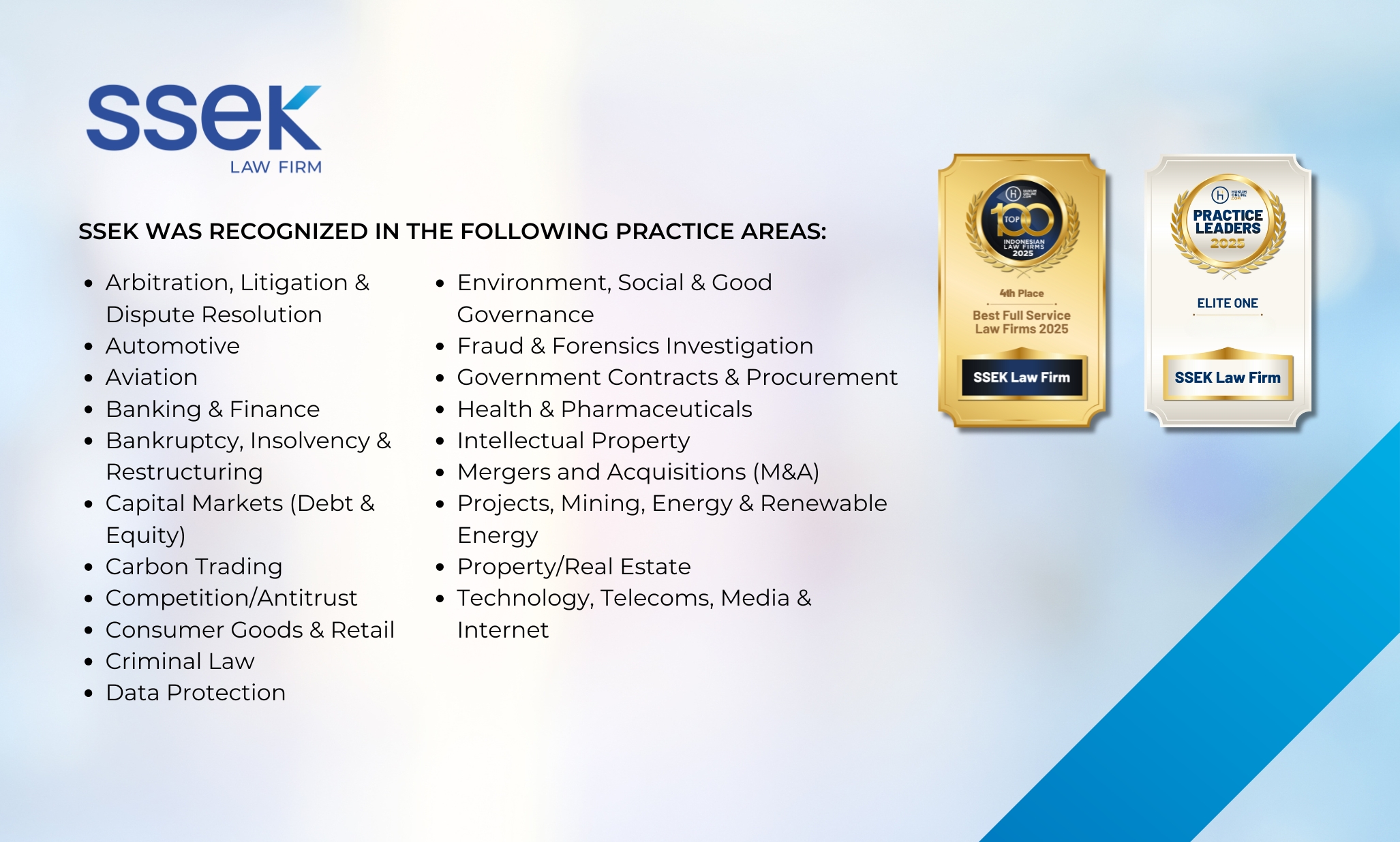

Purchasing shares in a company, either from a selling shareholder or from the company itself, is the most common type of share acquisition in Indonesia. Asset acquisitions are also becoming more common for individuals acquiring business units.
Other methods include mergers or amalgamations, where the target company may be dissolved into the surviving company and will therefore no longer exist.
Primary Regulators
Depending on the sector in which the target company is engaged, any change of shareholding composition resulting from either a merger or acquisition must be approved or acknowledged by the Indonesian Ministry of Law and Human Rights. The Ministry is the department that oversees all limited liability companies, no matter the sector, non-public or public alike.
If a foreign party wishes to acquire shares in an Indonesian company, generally, for most industries, a certain ownership limitation will be applicable, and it will be monitored by the Investment Coordinating Board (Badan Koordinasi Penanaman Modal or BKPM). Other industries, especially if they are heavily regulated, eg, banking, finance and telecommunications, are under specific government agencies, such as the Financial Services Authority (Otoritas Jasa Keuangan or OJK), Bank Indonesia or the Ministry of Communication and Informatics.
The OJK has supervisory authority for the takeover of public companies and if the public company is listed on the Indonesia Stock Exchange (IDX), then the IDX's listing and trading rules will also apply, particularly when there is trading activity due to the M&A activity.
It is possible that multiple regulators will supervise a transaction if the target company's status and core business require it. For example, for the acquisition of a public company engaged in the telecommunications sector, both the OJK and the Ministry of Communication and Information Technology will play a supervisory role. Other government agencies may have regulatory oversight of a particular transaction, depending on the business in which the public company engages. For example, the Ministry of Transportation supervises the aviation, shipping and land transportation sectors. Regulations issued by these and other industry-specific government agencies will impact mergers and acquisitions.
Restrictions on Foreign Investments
There are various limitations to foreign direct investment in various sectors in Indonesia, which can be found in the general "negative investment list" issued from time to time by the President or in a specific law or regulation related to a specific sector such as banking, finance, aviation or payment systems. Some sectors are completely closed to foreign ownership, but many sectors (eg, manufacturing, IT service and management consultancy) are open for 100% foreign investment.
Antitrust Regulations
Post-merger notification is mandatory for any merger, consolidation or acquisition of shares between non-affiliated companies that:
- causes a change in control; and
- meets the Indonesian assets or sales thresholds (as set out below).
The qualifying transaction must be reported to the Business Competition Supervisory Commission (Komisi Pengawas Persaingan Usaha or KPPU) within 30 working days as of the effective date of the relevant merger, consolidation or acquisition.
There are two applicable thresholds used to assess whether a transaction is subject to the merger report, whether:
- the combined value of the companies' assets in Indonesia exceeds IDR2.5 trillion (IDR20 trillion for banks); or
- the combined turnover in Indonesia exceeds IDR5 trillion.
Merger, consolidation or acquisition-of-shares transactions conducted between affiliated parties are exempt from the mandatory post-merger notification. Parties are considered affiliated if one controls the other (whether directly or indirectly) or if the same entity controls them. Mergers, consolidations or acquisitions of shares between companies that are controlled by the government (ie, state-owned enterprises) do not qualify for this exemption.
Labor Law Regulations
The Indonesian Labor Law (Law No. 13 of 2003) allows an employee to resign due to a "change of ownership" of the employer entity and receive enhanced separation entitlements. Another issue concerning labor entitlements due to a change of ownership is the impact on the purchase and sale transaction. Labor entitlement payments can be costly, especially where there are many long-serving permanent employees.
This first appeared in the Chambers Corporate M&A 2020 global guide, published by Chambers and Partners.
This publication is intended for informational purposes only and does not constitute legal advice. Any reliance on the material contained herein is at the user's own risk. All SSEK publications are copyrighted and may not be reproduced without the express written consent of SSEK.









